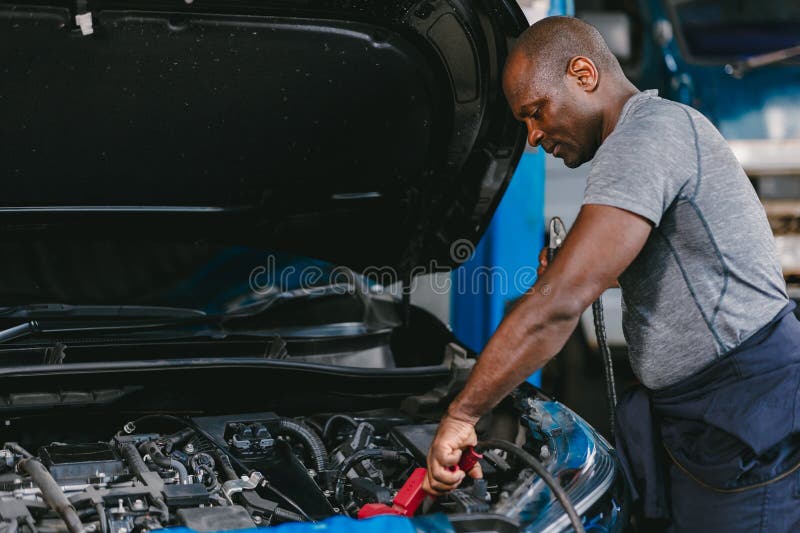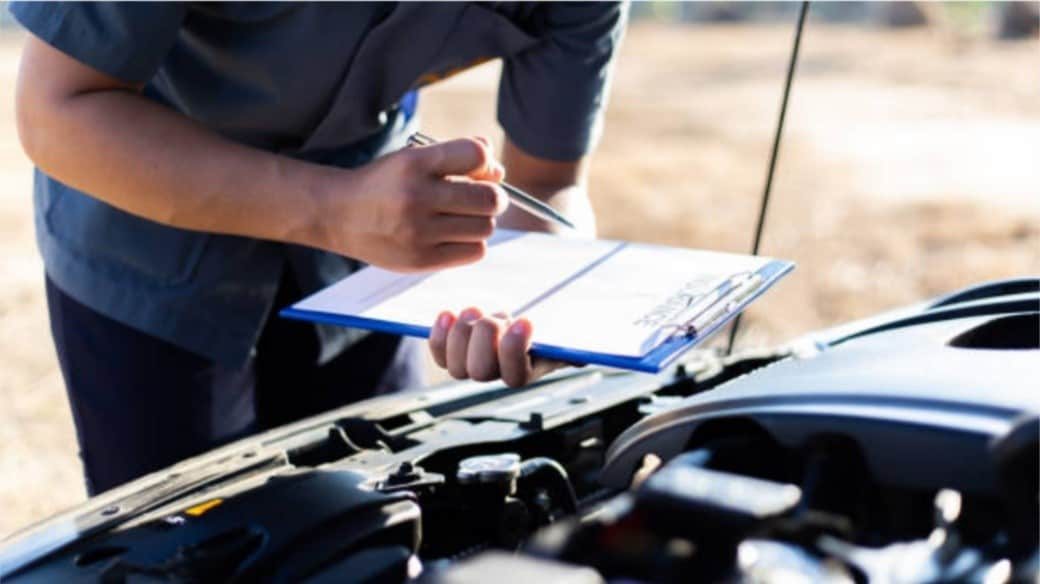All Categories
Featured
When your vehicle begins to get too hot, it can be a frightening and stressful scenario. Nevertheless, recognizing just how to react in these moments and taking steps to avoid future overheating can aid protect your automobile and prevent pricey repairs. Below's what to do if your automobile overheats and exactly how to stop it from happening once again.
What to Do If Your Cars and truck Overheats. Pull Over and Shut Off the Engine The very first thing you should do if your car begins to get too hot is to pull over to a safe location, such as a car park or the shoulder of the roadway. Switch off the engine immediately to prevent further damage. Running an overheated engine can trigger irreversible damages to the interior parts, consisting of the radiator and cyndrical tube heads.
Enable the Engine to Cool After shutting off the engine, offer it time to cool off. Opening up the hood can help release warmth, however be mindful as the engine and bordering areas might still be exceptionally warm. Wait at least 15-20 minutes before attempting any type of further actions.
Check the Coolant Degree Once the engine has cooled down, inspect the coolant level. Never ever open the radiator cap while the engine is warm, as this could trigger hot coolant to spray and shed you.
Inspect for Leakages or Broken Hose Pipes While you are evaluating the coolant level, check for any noticeable leakages or harmed pipes under the hood. Split or damaged pipes can create coolant to leak out, causing a getting too hot engine. If you find any type of concerns, you might require to require roadside aid or a tow to obtain the automobile to a mechanic.
Ask For Assistance If you can not determine the reason for the getting too hot or the issue continues after topping off the coolant, it's best to call for roadside help. Driving with an overheated engine can trigger serious damages to your car and leave you stranded.
![]()
Exactly How to stop Your Cars And Truck from Getting too hot. Inspect Coolant Levels Regularly Among the primary reasons of getting too hot is reduced coolant levels. If required, make it a habit to examine your coolant degrees routinely and top them off. Refer to your lorry's manual for the suggested coolant combination and maintenance intervals.
Examine Your Radiator Your radiator plays a critical role in keeping the engine cool. Make certain there are no clogs or particles blocking air flow through the radiator. If your radiator is obstructed or damaged, it might not work correctly, bring about overheating.
Maintain Your Air conditioning System The cooling down system needs to be flushed and replenished regularly. With time, coolant can end up being contaminated or shed its effectiveness. Follow the producer's suggestions for flushing the system, typically every 30,000 to 50,000 miles.
Display the Thermostat and Water Pump The thermostat controls the temperature of the engine, while the water pump distributes coolant via the engine. If either of these components fails, it can trigger the engine to get too hot. Have your mechanic examine the thermostat and water pump during regular upkeep.
Stay Clear Of Straining the Automobile Overloading your car, specifically on lengthy journeys or warm days, can strain the engine and the air conditioning system. Bear in mind your automobile's weight limitations and try to stay clear of lugging heavy lots, particularly when driving in severe temperature levels.
Drive with Care Aggressive driving, such as speeding or quick velocity, can increase engine anxiety and warm manufacturing. Decrease, specifically on warm days or when increasing steep inclines, to lower the danger of getting too hot.
![]()
Final thought. If your automobile overheats can avoid further damage to your engine and assist you take care of the scenario securely, understanding what to do. By frequently checking your coolant degrees, inspecting the radiator and pipes, and maintaining the cooling system, you can decrease the threat of getting too hot. With proactive care and proper maintenance, your vehicle will remain in excellent problem, ensuring you remain secure and stay clear of costly repair services in the future.
What to Do If Your Cars and truck Overheats. Pull Over and Shut Off the Engine The very first thing you should do if your car begins to get too hot is to pull over to a safe location, such as a car park or the shoulder of the roadway. Switch off the engine immediately to prevent further damage. Running an overheated engine can trigger irreversible damages to the interior parts, consisting of the radiator and cyndrical tube heads.
Enable the Engine to Cool After shutting off the engine, offer it time to cool off. Opening up the hood can help release warmth, however be mindful as the engine and bordering areas might still be exceptionally warm. Wait at least 15-20 minutes before attempting any type of further actions.
Check the Coolant Degree Once the engine has cooled down, inspect the coolant level. Never ever open the radiator cap while the engine is warm, as this could trigger hot coolant to spray and shed you.
Inspect for Leakages or Broken Hose Pipes While you are evaluating the coolant level, check for any noticeable leakages or harmed pipes under the hood. Split or damaged pipes can create coolant to leak out, causing a getting too hot engine. If you find any type of concerns, you might require to require roadside aid or a tow to obtain the automobile to a mechanic.
Ask For Assistance If you can not determine the reason for the getting too hot or the issue continues after topping off the coolant, it's best to call for roadside help. Driving with an overheated engine can trigger serious damages to your car and leave you stranded.

Exactly How to stop Your Cars And Truck from Getting too hot. Inspect Coolant Levels Regularly Among the primary reasons of getting too hot is reduced coolant levels. If required, make it a habit to examine your coolant degrees routinely and top them off. Refer to your lorry's manual for the suggested coolant combination and maintenance intervals.
Examine Your Radiator Your radiator plays a critical role in keeping the engine cool. Make certain there are no clogs or particles blocking air flow through the radiator. If your radiator is obstructed or damaged, it might not work correctly, bring about overheating.
Maintain Your Air conditioning System The cooling down system needs to be flushed and replenished regularly. With time, coolant can end up being contaminated or shed its effectiveness. Follow the producer's suggestions for flushing the system, typically every 30,000 to 50,000 miles.
Display the Thermostat and Water Pump The thermostat controls the temperature of the engine, while the water pump distributes coolant via the engine. If either of these components fails, it can trigger the engine to get too hot. Have your mechanic examine the thermostat and water pump during regular upkeep.
Stay Clear Of Straining the Automobile Overloading your car, specifically on lengthy journeys or warm days, can strain the engine and the air conditioning system. Bear in mind your automobile's weight limitations and try to stay clear of lugging heavy lots, particularly when driving in severe temperature levels.
Drive with Care Aggressive driving, such as speeding or quick velocity, can increase engine anxiety and warm manufacturing. Decrease, specifically on warm days or when increasing steep inclines, to lower the danger of getting too hot.

Final thought. If your automobile overheats can avoid further damage to your engine and assist you take care of the scenario securely, understanding what to do. By frequently checking your coolant degrees, inspecting the radiator and pipes, and maintaining the cooling system, you can decrease the threat of getting too hot. With proactive care and proper maintenance, your vehicle will remain in excellent problem, ensuring you remain secure and stay clear of costly repair services in the future.
Latest Posts
The Deauville Inn: A Bayside Heritage
Published Apr 19, 25
2 min read
Stress-Free Birthday Celebration Celebration Planning at FunCity Hotel
Published Apr 19, 25
1 min read
Discover the Perfect Carpet for Your Home
Published Apr 18, 25
1 min read